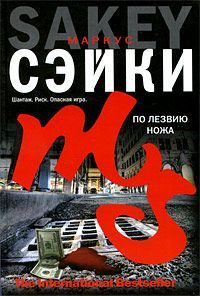John Creasey - Alibi
• • •
The luxury and the ostentation of the Savoy Grill was more than a change, it was a salve and a solace. So was being recognised by the doorman and one of the porters, and by the head waiter when he went in.
“Ah, Superintendent West —Mr. Artemeus is here.” He led the way to a corner table at which there was room for four but where one man was waiting. This could only be Artemeus. He was a heavily-built, beautifully groomed man, probably in the middle-fifties, with a somewhat sallow complexion and iron-grey hair. As Roger appeared he stood up, hand outstretched.
“Mr. West. How good of you to come.”
“Thank you for the invitation,” Roger said, gripping firmly and finding that Artemeus’s grip was also firm but not over-hearty. The head waiter pulled the table out for Roger to sit down, and another waiter hovered.
“What will you have?” asked Artemeus.
“A whisky and soda, please.”
“And bring me another pink gin,” Artemeus ordered the second waiter. When they were alone he proffered cigarettes, and Roger took one almost with relief. He seldom smoked these days, but this might help a little to ease tension.
“Thanks.”
Artemeus said, almost warily, “Dare I say you look a little worn, Mr. West?”
Roger half-laughed.
“More than a little,” he said. “I’ve had a rough morning.”
“One of the—ah—problems you face, no doubt, is the sudden pressure of work, both day and night,” said Artemeus, smiling depreciatingly. “And one of the advantages I can offer you are regular hours, excellent working conditions, and—but perhaps you would prefer to wait until we’ve had lunch before we get to the crux of the matter.”
The waiter arrived with the drinks at almost miraculous speed, and put them down. Roger picked up his glass.
“Cheers.”
“Cheers.”
“Ah! That’s good,” Roger said, and sipped again. “I think I could bear to hear whatever you want to say, then I can ponder and we can perhaps discuss it over luncheon.”
“Good, good!” approved Artemeus. “Oh—I took the liberty of ordering smoked salmon and saddle of lamb— I hope you approve. If not, of course, the menu—”
“Both sound just right,” Roger said, and sipped again.
“Splendid!” Artemeus was just a little over-hearty, over- emphatic, over-anxious to please. “Very well, then, I will get straight to the point. I am a director of Allsafe, the second largest firm of security police in the country, Mr. West. We have some excellent men in all departments and a very extensive business; there is so much in industrial security which the existing police forces cannot handle.” He paused as if to give Roger a chance to comment but Roger simply nodded non-committally. “We need an administrator to replace one who is shortly to retire, and we want an experienced, highly successful detective from Scotland Yard. With such a man at our head we would greatly impress not only our present clients but also attract many new ones. You are the man we want. There is 110 better-known policeman, none who attracts so much public attention, or, may I say, approval. We would, of course, pay a salary fully commensurate with your reputation and your position—”
Artemeus paused for a long time and his gaze was very intent; even piercing. Then he went on with great deliberation, “The salary would be twenty thousand pounds a year—that is, some four times your present emolument. And if that is not sufficient inducement by itself, then perhaps the prospect of a carte blanche on expenses and six weeks holiday a year, including this year if you could join us so quickly, would make the offer more attractive.”
He sat back and sipped his pink gin, while Roger reacted to what he had said in utter disbelief.
Chapter Nine
QUESTIONS
Roger was aware of the chatter of conversation about him, the clatter of dishes, of distant music. An attractive brunette in a wide-brimmed hat, sitting at a table near-by, was obviously more intrigued by him than by her companion. The waiter came up, enquiringly, and Artemeus asked, “Another Scotch, Mr. West?”
“Er—no, thanks.”
“Then we’ll have the wine,” declared Artemeus. “And tell M’sieu Henri we will start luncheon.”
“Very good, sir.”
As the waiter disappeared, deftly weaving his way between tables, Artemeus turned back to Roger with a faint smile, and finished his drink. Roger downed his. He was almost sure that that woman in the wide-brimmed hat was trying to flirt with him; certainly she was trying to attract and hold his attention. In a way he was glad she was there; he could glance at her from time to time and so hide his astonishment at the hugeness of the offer.
Artemeus was obviously waiting for him to comment.
“That’s a very large sum of money,” Roger remarked at last.
“It is a reasonable sum in commercial circles but very substantial compared with the salaries of civil servants,” Artemeus replied. “I have always believed that senior civil servants, particularly the police, have been scandalously underpaid.” Roger let that go without comment. “The private security organisations are better off, especially among the higher ranks, of course.”
“Or you wouldn’t get them to leave the London and provincial forces,” remarked Roger drily. “How did the men who came to you from the ex-colonies shape up?”
“Very well, on the whole,” Artemeus told him.
As he spoke, a black-suited, black-tied waiter with an aproned youth to wait on him appeared with a dish of Scotch smoked salmon and paper-thin brown bread and butter. Roger waited until they had both been served before he asked, “What makes you think my publicity value is worth so much?”
“Simple power of observation,” answered Artemeus smoothly.
“Doesn’t that put you on the spot?” asked Roger.
“Meaning?”
“That I could ask for more.”
Artemeus pursed his lips.
“How much more?”
“I haven’t even begun to think it through,” answered Roger. “In fact the offer you’d made would be big enough if I were of a mind to resign from the Yard.”
“Are you?” asked Artemeus, quite sharply.
“I can’t really say I am,” answered Roger slowly, “but I can’t truthfully say that I don’t sometimes get tired of the Yard.” He shrugged. “The hours, the fact that one is constantly on call—”
“The fact that your wife gets sick of being disappointed when, instead of taking her out, you’re called to a job,” Artemeus murmured. “West, I don’t want to try to persuade you, and I don’t for a moment expect an immediate answer now. I can leave the offer open for two months, perhaps a little more, to the end of July. If you haven’t accepted by then, I’ll have to look for someone else.”
He stopped, while the saddle of lamb, beautifully browned, was brought to them on a large copper dish and then carved at their side. There were green peas mixed with tiny onions, new potatoes and mint sauce with red- currant jelly. After they were served, he continued as if there had been no pause.
“Meanwhile, I’ll be glad to answer any questions, now or later.”
“Thank you,” Roger said. “First—is the offer confidential?”
“Absolutely. Only my board and I know about it. All discussion has been in person, and none of my staff has been involved.”
“Thanks. Where would the job be?”
“You would be in London most of the time and your office and staff would be situated centrally. There are five provincial or regional offices and you would probably need to visit two of them each month.”
“What kind of work is involved?”
“Industrial and commercial security, such as watching buildings—particularly banks, conveying wages from banks to factories and offices, investigating industrial sabotage of all kinds. You would find it a cake-walk, West.”
“Possibly,” Roger said drily. “What staff would I have?”
“You would need at least two secretaries, probably two receptionists and some other clerical help.”
“About three times what I get now,” Roger said ruefully.
“Precisely. You could do your job of organising a nationwide security service, instead of spending half your time making out reports, talking to subordinates and kow-towing to the com—” Artemeus broke off, looking slyly at Roger. “I’m sorry,” he added mockingly, “I quite forgot. You aren’t exactly the type to kow-tow to anyone, are you?”
Roger said evasively, “I have my superiors.”
“Yes, indeed. Well!” Artemeus beckoned the waiter and pointed to the saddle of lamb, now beneath the huge lid. “Another two cuts, I think,” he said, “and the rest for Mr. West.” After the carving and the fussing was over and the table wheeled away, he went on, “Any more questions?”
“No pressing ones,” Roger answered.
“Good! So far you’ve come up with nothing I wasn’t prepared for.” Artemeus went on eating, and then said a- propos of nothing, “Your no doubt revered chief used to come in here quite a lot, before he became your chief. Is he doing the job he was supposed to do?”
Roger asked guardedly, “Which particular chief?”
“Oh, the comissioner: Sir Jacob Trevillion.”
“I didn’t know he’d been appointed to do any particular job,” Roger replied. “I don’t move in such exalted circles.”
“Oh.” Artemeus seemed surprised, but Roger doubted whether he really was. “Well, rumour has it that discipline at the Yard was getting slack and needed tightening. Trevillion was a martinet—stickler for discipline—in the Navy. He—”
“You know, I’m not sure that I want to discuss him,” Roger interrupted.
“Oh, I’m sorry. I didn’t intend—” Artemeus broke off, as if in confusion, but after a few minutes he turned to another subject, broaching it with a self-deprecatory smile. “I don’t suppose you’re able to discuss a case you’re working on, either. It is an unusual one you’ve got now, isn’t it?”
“You mean, the death of the man Verdi.”
“Yes. And the bosomy blonde whom you so nicely dealt with in court,” added Artemeus. “I’m less interested in the victim and his assailant and the witnesses, though, than
“I am in Rachel Warrender. You know, the girl solicitor who appeared for Rapelli at the last moment.” He looked hard at Roger, who nodded, and then went on, “She’s a remarkable young woman from a remarkable family. Do you know much about Warrender, Clansel and War—” render?”
“Not much,” said Roger, still guardedly; but now his interest was increasing swiftly. A question was banging against his mind like a trip-hammer. Could this be what Artemeus had really wanted to see him about, or was the mention of the girl simply fortuitous? He had wondered at the timing of the offer, and the ingenuous way in which Artemeus had brought the commissioner into the conversation had been worth noting. Now here was “coincidence” number two.
“They’re mostly insurance and banking lawyers,” said the other man. “It’s fourth generation in each family. Sir Ian Warrender, the senior partner, probably knows more about international insurance and banking laws than anyone alive. He received his knighthood for services in connection with the Bank of England’s overseas activities. Jonathan Clansel was a channel swimmer—did it both ways—and is a great supporter of Boysland.” Boysland, West recollected, was a very big youth club, or group of clubs, which operated mostly in the East End of London. “Sir Roland Warrender, bother of Sir Ian, who also got his knighthood for banking activities—” Artemeus broke off with a smile, then asked, “Ring a bell?”
“Sir Roland Warrender, the Member of Parliament who’s so right-wing the Conservative Party disowned him last year?” asked Roger.
“Yes. He’s Rachel’s father.”
“So I understand.”
“She’s a junior partner. Older than she looks.” went on Artemeus. “In her late twenties. I was surprised at first that they’d allowed her to intervene for Rapelli, but the more I think of it, the more reasonable it seems. She doesn’t fit in with the family party line. She’s extremely left-wing, a great campaigner for anti-Vietnam, anti- colonialism of any kind, anti-nuclear weapons, anti—” He broke off with a smile. “She’s like the rest of the family in do-gooding and looking out for the underdog—but she sometimes gets a bit confused as to who the underdog is,” he added drily. “How did she show up in court?”
“Very well, I would say.”
“Clever—I mean clever—girl,” opined Artemeus. “I can see her as a Member of Parliament one of these days, campaigning for votes for babies at the breast!” He beckoned the waiter. “How about a dessert, Mr. West? They do a very good chocolate gateau here, or their trifles are excellent.”
“I think cheese—”
“I’m for the gateau,” Artemeus declared. “And coffee? How about brandy or a liqueur?”
“I have to work this afternoon,” Roger protested, half- laughing.
“Wait until you work for us,” Artemeus said slyly. “Then you can take three hours for a big business lunch, and have an hour’s nap before you have to wake up to go home!”
• • •
Where was the catch? wondered Roger. There must be one. He couldn’t possibly consider the offer on its face value.
• • •
As he walked out of the hotel into the bright sunshine of one of the warmest days of summer, Roger saw a nearly empty number 11 bus which would drop him within a minute’s walk of Broadway and the Yard’s new home. He needed a little time for reflection and to recover from the enormous meal. Hastily buying a copy of the latest Globe, he boarded the bus, hurried up the stairs, and stumbled towards a vacant bench at the front, head bent low to avoid the roof. For a few minutes he sat looking through the window as the panorama first of the Strand, then of Trafalgar Square, opened out in front of him, followed by the tall and graceful buildings of Whitehall.
At last, he opened the newspaper.
Death of Trial Witness screamed the first headline. Arrest of Another ran the second.
There was a fairly accurate account of the death of Wilfred Smithson and another of the arrest of Maisie Dunster, some reference to West but no sneers or innuendo, only a slightly critical tone about the Yard’s “carelessness” in allowing a witness to be run down. Roger folded the paper and put it under his arm, almost as the bus passed the narrow end of the street which led down to the old building of Scotland Yard. He had a great nostalgia for the red-brick edifice in which he had spent most of his working life, but when he reached the new headquarters, he could not fail to compare its lightness and airiness favourably.
He went in, at exactly half past three.
He had a strange feeling as he walked along the plain, almost hospital-like passage to his office—a feeling which was almost a dread of trouble, of complaint and accusation. But everything was normal, including a note on his desk from Danizon.




